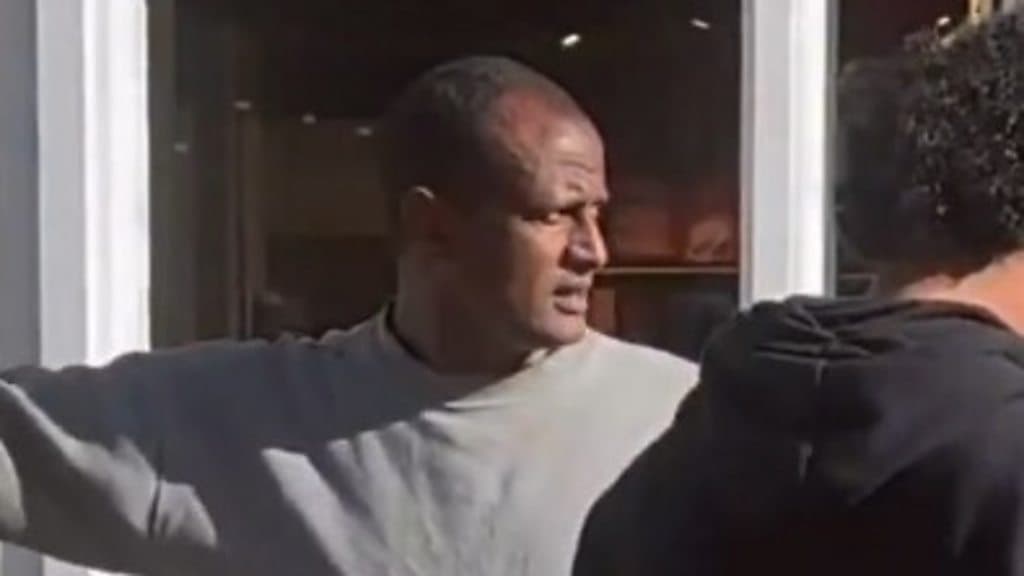We're loading the full news article for you. This includes the article content, images, author information, and related articles.
A major systemic failure in the UK prison system sees an Ethiopian national, jailed for sexual assault, erroneously released, sparking a nationwide manhunt and raising serious questions about public safety and immigration protocols.

A large-scale manhunt is underway across London and the South East of England for Hadush Gerberslasie Kebatu, an Ethiopian national and convicted sex offender, who was mistakenly released from prison on Friday, 24 October 2025. Essex Police, in a statement issued Saturday morning, confirmed that Kebatu, 41, was last seen in the London area after being freed from His Majesty's Prison (HMP) Chelmsford in what the Prison Service has described as a "human error." Officers from Essex Police, the Metropolitan Police, and British Transport Police are collaborating in a fast-moving investigation, scouring hours of CCTV footage to track his movements. The public has been warned not to approach Kebatu and to call 999 immediately with any information.
Kebatu was serving a 12-month sentence, handed down in September 2025, for two counts of sexual assault and other related offences against a woman and a 14-year-old girl. The offences were committed in July 2025, just days after he arrived in the UK via a small boat. Following his conviction, under UK law, he was subject to automatic deportation. He was scheduled to be transferred from HMP Chelmsford to an immigration detention centre to await removal to Ethiopia. Instead, he was wrongly categorised for release and walked free from the prison at approximately 12:41 PM EAT (10:41 AM BST) on Friday. Reports suggest he was also given a £76 discharge grant. An urgent investigation into the release has been launched by the UK's Justice Secretary, David Lammy, and a prison officer has been removed from duties pending the inquiry.
While this incident has no direct links to Kenya, it highlights critical issues of global relevance, particularly for nations managing complex immigration and asylum systems. The case underscores the severe consequences of administrative failures within a country's justice and immigration apparatus. For East African nations, which host significant refugee and migrant populations, the incident serves as a case study on the importance of robust, integrated protocols between judicial, penal, and immigration authorities to manage foreign national offenders. The UK's struggle to efficiently process and, where necessary, deport foreign criminals—even those like Kebatu who reportedly expressed a wish to be deported—is a significant point of analysis. The UK Borders Act 2007 mandates the deportation of foreign nationals sentenced to 12 months or more, a policy designed to protect the public. The failure to implement this policy correctly in Kebatu's case has triggered intense political debate in the UK, with Prime Minister Keir Starmer calling the release "totally unacceptable." This event also feeds into a wider, often volatile, international debate on immigration, security, and the rule of law. Kebatu's initial arrest had already sparked protests and counter-protests in Epping, Essex, over the summer, which were exploited by far-right activists, demonstrating how individual criminal cases can inflame national tensions over migration.
Prison Service sources in the UK have pointed to systemic issues, including inexperienced staff processing a high volume of releases, as a potential cause for the error. Recent UK government data indicates a sharp rise in erroneous releases, with 262 prisoners freed by mistake in the year to March 2025, a 128% increase on the previous year. This systemic pressure, coupled with the specific failure in Kebatu's case, has prompted calls for a public inquiry from opposition politicians. The father of Kebatu's teenage victim told Sky News, "The justice system has let us down," a sentiment that now resonates with a concerned public as the search for the fugitive continues.
Keep the conversation in one place—threads here stay linked to the story and in the forums.
Sign in to start a discussion
Start a conversation about this story and keep it linked here.
Other hot threads
E-sports and Gaming Community in Kenya
Active 9 months ago
The Role of Technology in Modern Agriculture (AgriTech)
Active 9 months ago
Popular Recreational Activities Across Counties
Active 9 months ago
Investing in Youth Sports Development Programs
Active 9 months ago